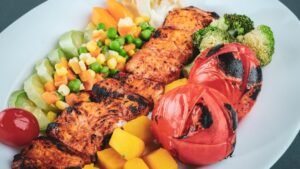The moment I stepped off that bus in a remote village in Cambodia, stomach rumbling from hours without food, I had no idea how profoundly this experience would reshape my understanding of both hunger and joy. Travel has a way of stripping away our comfortable assumptions and revealing truths we never expected to discover.
Over the years, wandering through bustling markets in Morocco, sharing meals with families in rural Peru, and navigating food scarcity in remote corners of the world, I've learned that hunger isn't just about empty stomachs. It's about perspective, gratitude, and the complex relationship between want and contentment. Let me take you on a journey through these revelations.
The Immediate Awakening to Real Hunger

My first encounter with true hunger happened not by choice, but by circumstance during a trek in Nepal's remote mountains. When our food supplies ran dangerously low due to weather delays, I experienced something beyond simple appetite. The Food and Agriculture Organization defines hunger as "an uncomfortable or painful physical sensation caused by insufficient consumption of dietary energy", but this clinical description barely captures the overwhelming reality.
The physical discomfort was undeniable. My energy plummeted, concentration became impossible, and even simple conversations felt exhausting. However, what struck me most was how this experience opened my eyes to a global reality I had only known in statistics. Around 733 million people faced hunger in 2023, equivalent to one in eleven people globally and one in five in Africa.
That night, sharing watery rice with fellow travelers, I realized how removed I had been from this fundamental human struggle. The hunger pangs eventually subsided when we reached the next village, but the lesson remained etched in my memory. For millions worldwide, this wasn't a temporary inconvenience but a daily battle for survival.
This experience taught me that true understanding often comes through discomfort. Travel doesn't always provide comfortable revelations, yet these challenging moments frequently offer the most profound insights into our shared humanity.
Discovering Joy in Simplicity

After experiencing genuine hunger, my relationship with food transformed entirely. Simple meals became celebrations. A bowl of dal and rice in a Kathmandu guesthouse tasted more satisfying than any fancy restaurant meal I had ever enjoyed. This wasn't just about satisfying physical hunger, it was about recognizing abundance in what I had previously considered ordinary.
Research supports this transformation. Studies show that people who traveled had higher subjective wellbeing than those who did not, and part of this happiness stems from gaining fresh perspectives on what truly matters. When you've experienced genuine scarcity, everyday abundance becomes visible in ways you never imagined.
I began noticing how often I had taken meals for granted. The luxury of choice, the ability to eat when hungry, the security of knowing where the next meal would come from. These weren't privileges I had consciously appreciated before travel exposed me to different realities.
Travel taught me that happiness often lies in recognizing what we already have rather than constantly seeking what we lack. This shift in perspective became one of the most valuable lessons from my wandering years.
The Gratitude Revolution That Changed Everything

Sitting at a family table in rural Guatemala, watching my host carefully portion out beans and tortillas to ensure everyone had enough, I experienced a profound gratitude shift. This family, living with resources I would have considered insufficient, radiated contentment and warmth that many of my materially wealthy friends back home seemed to lack.
Travel encounters with different cultures and living conditions can help us discover a newfound appreciation for our own homes and lives. Acts of kindness from friendly locals and fellow travelers can highlight the kindness in the world and cultivate gratitude. Natural beauty can inspire awe and gratitude by witnessing the diversity of nature and manmade wonders.
The gratitude I developed wasn't superficial or forced. It emerged naturally from witnessing how people created joy and meaning despite material limitations. I learned to appreciate running water, electricity, and full refrigerators not as basic expectations but as genuine privileges that billions lack.
This gratitude revolution extended beyond material possessions. I became thankful for mobility, health, education, and the freedom to travel itself. These realizations fundamentally altered my baseline for happiness, making me more content with less while appreciating what abundance I did possess.
Travel showed me that gratitude is perhaps the most direct path to happiness, transforming ordinary moments into sources of genuine joy through simple recognition and appreciation.
When Food Becomes Connection, Not Just Sustenance

Breaking bread with strangers in a Moroccan medina, I discovered food's power as a universal language. Despite sharing no common spoken words with my hosts, the act of sharing meals created instant connection and understanding. Food became a bridge between cultures, a way to express care and build relationships that transcended language barriers.
One of the most meaningful aspects of travel is interaction with local people. Engaging in conversations or participating in community activities can deepen your understanding of a culture and foster meaningful connections. Food often serves as the catalyst for these precious human connections.
In many cultures I encountered, sharing food represented far more than nutrition. It symbolized trust, hospitality, community, and love. Families would invite complete strangers to their tables, sharing whatever they had available regardless of their own limitations. This generosity despite scarcity taught me about true wealth.
I learned that some of the world's most food-generous people were also those with the least material abundance. Their willingness to share limited resources with travelers revealed values and priorities that made me question my own relationship with giving and receiving.
The Mindfulness Revolution Born from Necessity

When food is scarce or precious, you naturally become more mindful about eating. Every bite carries weight, every flavor deserves attention, every meal becomes a meditation. Travel taught me to eat with intention rather than distraction, transforming meals from rushed necessities into moments of presence and appreciation.
Practicing mindfulness and presence during transformational travel helps cultivate a deeper sense of awareness, gratitude, and joy in the present moment, enhancing overall well-being and sense of fulfillment. This mindful approach to eating became one of travel's most sustainable gifts.
I began noticing textures, flavors, and aromas with heightened awareness. Meals became opportunities for mindfulness practice rather than mindless consumption. This shift affected not just eating but my entire approach to experiencing life's pleasures.
The mindfulness born from necessity during travel continued long after returning home. I found myself eating more slowly, appreciating ingredients more deeply, and viewing meals as opportunities for gratitude practice rather than mere fuel consumption. This transformation enhanced both physical health and emotional wellbeing.
Understanding Privilege Through Empty Plates

Witnessing children in a Kenyan village share a single mango among four siblings, carefully dividing every piece to ensure fairness, fundamentally altered my understanding of privilege. What I had considered normal abundance was actually extraordinary privilege that billions of people never experience.
Current global statistics make this privilege starkly clear. In addition to 733 million people facing hunger, 2.33 billion people - nearly 29% of the global population - are food insecure without regular access to the nutritious food needed to live a healthy life. These numbers represent real people, real families, real children I had met during my travels.
This recognition of privilege came with responsibility. I could no longer waste food unconsciously or take abundance for granted. Travel had connected faces and stories to statistics, making global hunger personal rather than abstract.
Understanding privilege didn't create guilt but rather motivated action and appreciation. I began supporting organizations working on hunger relief and became more intentional about reducing food waste in my own life. Recognition became the first step toward meaningful response.
How Sharing Meals Became Sharing Stories

Around cooking fires in Peruvian villages and crowded family tables in Vietnamese homes, I discovered that meals naturally create storytelling opportunities. Food becomes the excuse for gathering, but stories become the real nourishment that feeds the soul and builds understanding between strangers.
These shared meal experiences taught me that hunger for connection often surpasses physical hunger in importance. People would share limited food generously but share stories even more freely. Through these exchanges, I learned about resilience, joy, struggle, and hope in ways no guidebook could convey.
Language barriers dissolved during shared meals. Gestures, expressions, laughter, and the universal language of hospitality communicated more than words ever could. I realized how isolated eating alone had made me feel and how much richness comes from communal dining experiences.
These storytelling sessions taught me that everyone has remarkable stories worth hearing. Travel revealed the extraordinary within the ordinary, the universal within the specific, and the profound within the simple act of sharing food together.
The Unexpected Happiness of Limitations

Counterintuitively, some of my happiest travel moments occurred during times of greatest limitation. When choices were few, appreciation increased. When resources were scarce, creativity flourished. When comfort was absent, presence intensified. These paradoxes challenged everything I thought I knew about happiness and fulfillment.
The first mechanism explaining why higher leisure travel may be associated with higher quality of life for tourists is due to frequent travel offering individuals opportunities to engage in enjoyable and fulfilling experiences, fostering positive emotions such as happiness. However, I learned that limitation can be equally powerful in fostering happiness through heightened appreciation.
Sleeping on hard floors taught me to appreciate comfortable beds. Eating simple rice and vegetables made me savor complex flavors. Walking long distances deepened my gratitude for transportation. These limitations weren't punishments but teachers, revealing appreciation I had never accessed through abundance alone.
This lesson fundamentally shifted my understanding of happiness from acquisition to appreciation, from having more to noticing more, from external comfort to internal contentment. Travel taught me that happiness often emerges not despite limitations but because of them.
Coming Home with New Eyes

Returning home after experiencing global hunger patterns transformed my familiar environment into something almost foreign. Grocery stores seemed like wonderlands of abundance, restaurant portions appeared enormous, and the casual waste in my home country became painfully obvious through fresh eyes shaped by travel experiences.
Experiences from different cultures and living conditions can help us discover a newfound appreciation for our own homes and lives. This appreciation wasn't temporary culture shock but lasting transformation that continued influencing my daily choices and perspectives.
I found myself unable to throw away food without thinking of faces I had met who would treasure those scraps. Restaurant portions became shareable abundance rather than individual servings. Grocery shopping became an exercise in gratitude rather than mundane routine.
These new eyes extended beyond food to encompass infrastructure, opportunities, safety, and countless privileges I had previously ignored. Travel had gifted me permanent perspective glasses that revealed abundance hiding in plain sight throughout my everyday life.
The transformation wasn't about feeling guilty for privilege but about using awareness to enhance appreciation and guide actions. Coming home with new eyes meant never again taking fundamental securities for granted while working to extend those securities to others when possible.
What do you think about the connection between travel, hunger, and happiness? Have your own travels changed how you view abundance and scarcity?





Leave a Reply